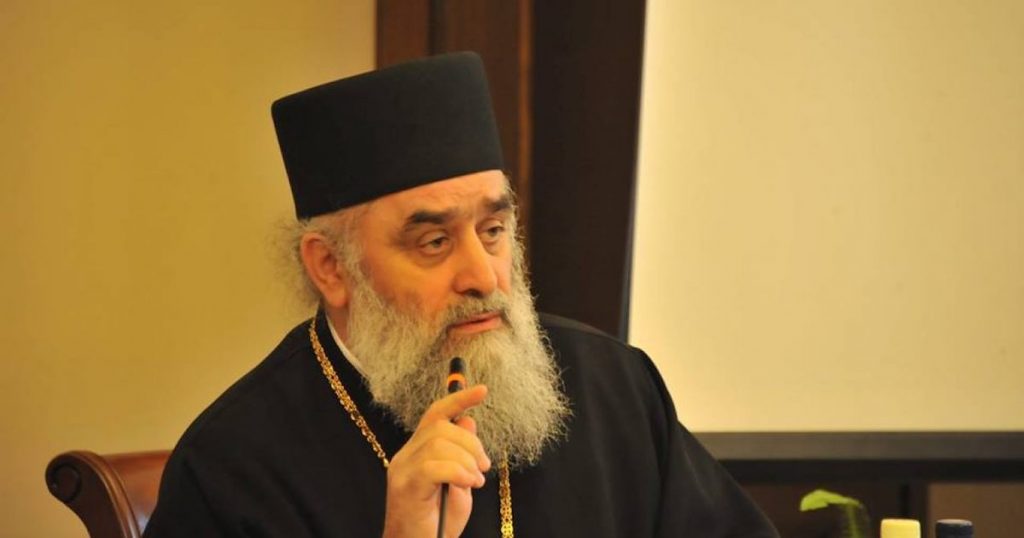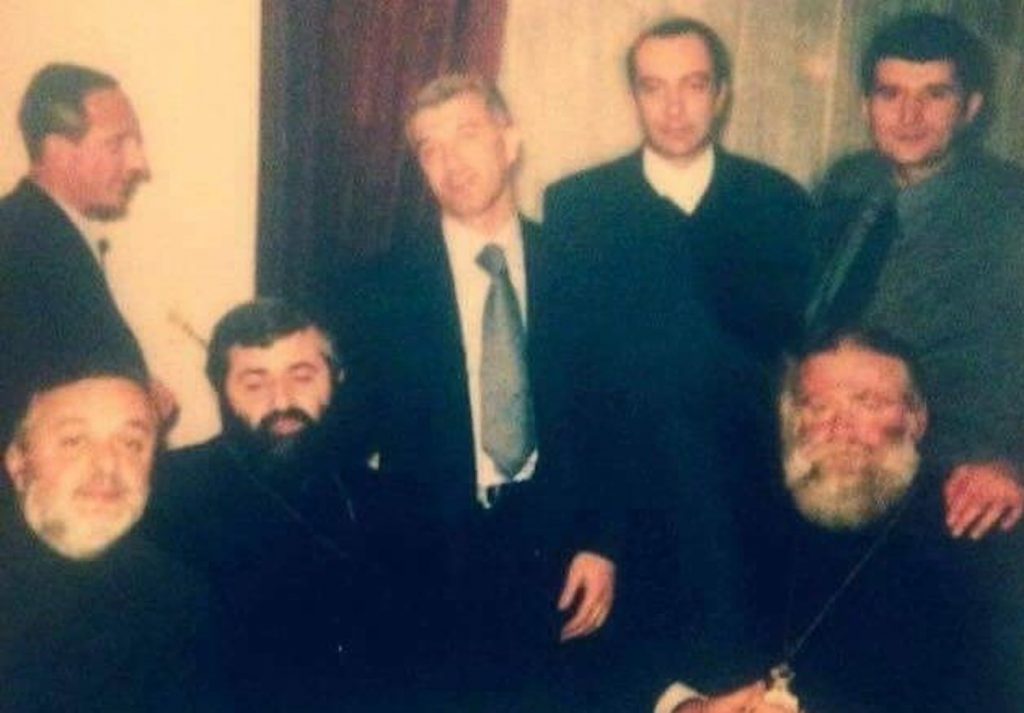Georgian media outlets: intelligence services spy on church leaders and even nuns
Intelligence services in Georgia monitor church leaders and their ties with Russia and the criminal world
The media in Georgia has announced receiving leaked secret files, from which it became known that the state security service is listening and watching the members of the Synod, the Patriarch, his assistants, bishops, priests, nuns, as well as active supporters of all of the above.
The authenticity of the materials has not yet been confirmed.
From the thousands of files released to the public, it can be concluded that the special services are monitoring the movements of clergymen, their bank transfers, as well as their personal lives. In particular, there is information about priests who use drugs or are friends with criminals.
The files were published in the public domain, presumably by a former employee of the state security service.
- Church and Pfizer: Georgia’s vaccine campaign fails
- Capital of the Patriarchate: Property of the most influential institution in Georgia
- Anti-vaxxing, homophobia, pro-Russian sentiments – is the church an obstacle on Georgia’s pro-Western course?
“It’s very bad if reports of illegal wiretapping are confirmed. However, we have all seen a lot of falsifications in some TV shows, slander, and, unfortunately, we are used to the fact that news are “created” and not just covered”, said Andriya Jagmaidze, Head of the Public Relations Department of the Patriarchate of Georgia.
“Adulters” – the personal life of the clergy
In the named documents, some clergy and civilians are assigned to the LGBT community. The block of files called “Adulters” contains information about 80 specific people.
The Formula TV channel reports that among them were recorded, among other things, intimate relations between priests and nuns, as well as facts of pedophilia and incest, and the personal data of specific children are given.
Close ties of the leadership of the Georgian Church with Russia
The named documents talk about possible connections between representatives of the Patriarchate and Moscow, including the legal or illegal business of the Georgian clergy in Russia.
The documents also mention the Catholicos-Patriarch of Georgia Ilia II himself, the same information is reported about him that was disseminated by the Georgian media before:
“In 1956-60 he studied at the Moscow Theological Academy-Seminary. In 1959 he was ordained by the Russian Patriarch Alexy II. In the past, he collaborated with the KGB under the pseudonym “Iverian”.
According to the documents, the influential secretary-assistant of the patriarch Shorena Tetruashvili was supposed to leave the position in the 1990s. However, she has remained in her post to this day at the personal request of the Russian Patriarchate.
According to many Georgian media outlets, it is Tetruashvili who has been controlling all processes in the Patriarchate and all senior officials in the church all these years, all while actively cooperating with Russian church and political circles.
Bishop Vakhtang Liparteliani is especially mentioned in the records. In 2014, he is said to have formed a secret clergy group for anti-Western propaganda. The documents suggest that Vakhtang Liparteliani is cooperating with Russia’s FSB.
Metropolitan of Poti and Khobi Grigol Berbichashvili. Intelligence agencies in Georgia monitor church leaders and their ties with Russia and the criminal world

Other named documents are associated with Metropolitan Poti and Khobi Grigol Berbichashvili.
According to the information, Berbichashvili was convicted four times and served a sentence in the Russian Federation together with Metropolitan Anton Bulukhia and may have secret relations with the Russian special services.
Metropolitan Anton Bulukhia, according to the documents, has business partners in Russia, as well as several busineses in Moscow – shops, restaurants, which are allegedly run by his mistress.

Other high-ranking church officials who are also suspected of having secret connections with the Russian special services include:
- Metropolitan of Akhalkalaki and Kumurdo Nikoloz Pachuashvili allegedly transferred information about Lugar’s laboratory to Russia for money; Metropolitan of Batumi and Lazetsky Dimitri Shiolashvili was the initiator of a conversation between the Georgian Patriarch and one of the bishops of the separatist Donetsk in Eastern Ukraine, which caused great public criticism of the Patriarchate’s address.
- Archbishop Spiridon (Gocha) Abuladze and Metropolitan Ruiz-Urbnisi Iobi Akiashvili belong to the circle of clergy that recognize the leading role of Russia in the “salvation” of the Orthodox world.
- Metropolitan of Zugdidi and Tsayshi Gerasime Sharashenidze was suspected by members of his family in 1993-94 of organizing the abduction of his son-in-law in Moscow.
- Archbishop Tabagadze of the Stepantsminda-Khevi diocese in 2000-2002 was associated with drug traffickers in North Ossetia.
- Archpriest Georgy Kharazashvili regularly contacts the leaders of the Russian organization International Foundation of Orthodox Peoples.
- The Davitian Movement, its leader Konstantin Svanadze and his deputy Giorgi Mikanadze. They actively participate in meetings in Russia and are interested in receiving funding from Russia.
- Archimandrite Pimen Kardava maintains regular contacts with the Russian special services in Abkhazia, periodically contacts them and convene meetings based on operational interests.
“The drunk bishop Jacob called me” – journalists and politicians confirm some information
Journalists and politicians in Georgia say they have already received reports of many cases that are now being disclosed in the documents of the special services.
Journalist Eka Kvesitadze says that Bishop Jacob Bodbe called her while drunk and told about the Russian connections of figures in the Georgian Patriarchate.
Politician Mamuka Khazaradze confirmed similar conversations with high-ranking church leaders.
“The problem is that there is no effective control mechanism over the state security service”
Public Defender Nino Lomjaria describes the fact that there is no effective mechanism in Georgia that would protect citizens and prevent the state security service from illegally interfering with their private life as a big problem.
The State Inspection Service issued a special statement demanding an immediate investigation of all alleged cases of covert surveillance.
The statement says that alleged covert surveillance in various forms has become systemic in Georgia.
“All forms of manipulation of personal information create a sense of insecurity in people, infringe on their dignity and have a destructive effect on their emotional state. It also undermines public confidence in government agencies that are responsible for legal methods of covert surveillance”, the statement said.
Government reaction
Irakli Kobakhidze, chairman of Georgian Dream, says the United National Movement and TV channels are constantly trying to discredit the church.
“This is an anti-state case and what does it mean, do you understand? Certain TV channels have certain ‘values’, for example, when a program says that one brother says something about another brother, it means that the leadership of your TV station has increased the values of Pavlik Morozov, this is the face of your TV station”, said Kobakhidze.
Shalva Papuashvili, a deputy from the ruling party, compares the materials prepared by the State Security Service and their distribution with a “model chronicle”.
He said the materials were fabricated and used by the National Movement to “stir up” the society.


















